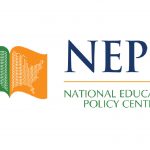Join the University of Buckingham’s CREATE-hub researcher Dr. Gill Hill as she talks about her creativity research alongside Professor James Kaufman, in the latest BPS Research Digest podcast.
How to Boost Your Creativity
September 17, 2019
Read stories related to the Neag School of Education’s academic programs.
September 17, 2019
Join the University of Buckingham’s CREATE-hub researcher Dr. Gill Hill as she talks about her creativity research alongside Professor James Kaufman, in the latest BPS Research Digest podcast.
September 17, 2019
“The Landscape isn’t much different than the original Adversity Index, other than [that] the College Board [is] reporting separate scores for the high school and neighborhood indices, and students now can receive their score along with colleges,” Casey Cobb said. “I think the biggest change was the name. They switched it to Landscape to deflect criticism that the scores validly measure adversity.”

September 16, 2019
Congratulations to our Neag School alumni, faculty, staff, and students on their continued accomplishments inside and outside the classroom. If you have an accolade to share, we want to hear from you! Please send any news items and story ideas to neag-communications@uconn.edu.

September 16, 2019
Beginning this fall, those interested in pursuing a master’s degree in research methods, measurement, and evaluation (RMME) within the Neag School’s educational psychology department will have the choice to study either in person at the UConn Storrs campus — or from anywhere in the world. The new fully online program is the first of its kind at the Neag School.
September 16, 2019
“The spirit of what I’ve always wanted to do with this course is have it live beyond the classroom,” Doug Glanville said. “It’s one thing to have a classroom of a finite group of students. It’s another thing when you’re able to bring it to the student body and to the community.”

September 13, 2019
This past summer I had the amazing opportunity to travel abroad to Costa Rica, where I spent six weeks living with a host family and volunteering at a local PreK-12dual immersionschool, La Paz Community School.

September 5, 2019
Michael Forsyth ’15 (CLAS), ’16 MA had already served in the U.S. Navy aboard two submarines and started a family when he decided in his late 20s to work toward a college degree. After completing his undergraduate degree in mathematics at UConn in 2015, Forsyth went on to earn his master’s degree in curriculum and instruction through the 11-month Teacher Certification Program for College Graduates at the Neag School of Education. He has since been finding creative ways to teach math to students at Connecticut River Academy in East Hartford, Conn.
September 4, 2019
“When I taught middle school students about finding trustworthy sources online a decade ago, internet connections and processors were still so slow that the hunt for multiple sources to confirm a finding took so much effort that analysis and interpretation was a much smaller part of the equation,” says Rachael Gabriel.

August 27, 2019
As the number of Holocaust survivors worldwide continues to dwindle each year, the question of how to preserve the stories of survivors as a means of remembrance and education becomes ever more relevant. Alan Marcus, associate professor in curriculum and instruction, is working to answer that question through research on three-dimensional, interactive technology.

July 30, 2019
2019 marks the 50th anniversary of that landmark case, Tinker v. Des Moines School District, where Tinker and the other plaintiffs prevailed.
In the Q&A below, National Education Policy Center Fellow and University of Connecticut professor Preston Green III explains the significance of the case, tracing its implications to modern-day student speech issues (like those related to social media) that the 1965 Court could not have foreseen.